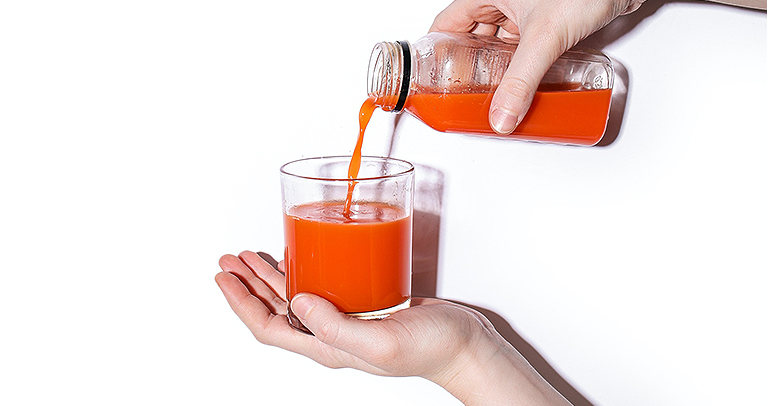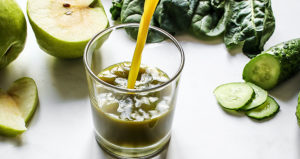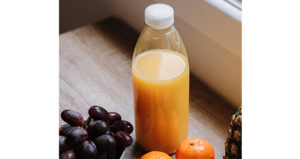
Beginners Guide to Choosing your Juicer
Centrifugal and masticating juicers are the two primary types of juicers to choose from. Both are fantastic for different reasons; herein this article, we’ll discuss the advantages and disadvantages of each, as well as a few additional types of juicers to consider.
Centrifugal Juicers
The most common juicers are centrifugal juicers. This is due to the fact that they are often less expensive and easier to use. A high-speed spinning strainer with a stainless steel blade disc at the bottom is used in this type of juicer. When you drop the produce from the machine’s top, the spinning disc shreds it all into a fine pulp. This causes the juice to be released and then pushed into the strainer. The fast centrifugal force makes a lot of noise and oxidizes the juice more than a slower moving masticating juicer. This method produces more foam and reduces storage time.
While these traditional juicers are extremely effective at producing fresh fruit juices, they have a disadvantage when it comes to juicing leafy greens like wheatgrass and kale. If juicing leafy greens is vital to you, you should look at a masticating or twin gear juicer instead.
In addition, if you are a purist juicer, leafy greens are your best friends, and you may dislike the fact that centrifugal juicers aren’t quite up to the duty of juicing greens. We do not possess one of these juicers and do not suggest them due to the aforementioned downsides.
Pros: Easy to clean and use, less prep time needed, juices fast, juices whole fruits, less expensive, juices fibrous veggies.
Cons: Not optimal for juicing greens, lower yield than a masticating juicer, noisy, juice doesn’t store well in the fridge, nutrients oxidize quicker, shorter warranty.
Masticating juicers
Masticating juicers are also known as cold-press juicers since their extraction method produces no heat. These juicers use a screw to mash and grind the produce into the juicer’s walls, pressing it through the strainer and separating the pulp and juice. It is a slow-running juicer that takes a bit longer but produces less oxidation, making it ideal for all types of vegetables, especially greens. The sole disadvantage is that, due to the small mouth hole, the produce must be processed before being thrown into the juicer.
Pros: Extracts more juice with higher nutritional value, less foam, juice lasts longer, quiet, less waste.
Cons: Takes longer to prep produce and make juice, more difficult to assemble and clean, higher price tag.
Twin Gear juicers
Another excellent juicer is a twin gear juicer. It works similarly to a masticating juicer, and the moderate speed rotation maintains the produce’s cellular structure. It contains two gears that revolve inward with a tiny gap, crushing and grinding vegetables to extract its juice. This type of juicer prevents oxidation and keeps the enzymes and nutrients in your juice intact. Juicing leafy greens and soft food is often simple with this type of juicer since the gears revolve inwards, allowing them to self-feed. Feeding hard produce, such as carrots or beets, may be more difficult. The key is to cut the fruit thin and at an angle that allows it to go in first.
Pros: Juice stays fresh longer, higher juice yield and nutritional value, quiet.
Cons: Takes longer to prep & juice, longer to clean, not optimal for juicing citrus, higher price tag, larger & heavier machine.
Citrus Juicers/Press
If you enjoy fresh orange juice, I recommend investing in a citrus press. Fruit and vegetable juicers, on the other hand, require a lot longer to use. However, if you plan on making more than a few ounces of citrus juice on a daily basis, I recommend investing in an electrical citrus juicer or citrus press. A vertical, ribbed reamer fits onto a shaft attached to the motor at the base of electric citrus juicers. When you apply pressure to the reamer by pushing the half-cut fruit down, the motor starts rotating. Many versions additionally have an auto-reverse feature.
Pros: Easy to assemble and clean, reasonably priced, juices fast, time saver, quiet.
Cons: Not as versatile, only citrus juices.
We all want what’s best for you.
To assist your way on the market, these reviews will tell you which are the best fruit and vegetable juicers for you and your budget! (This description is based on actual customer comments.)
-
Amzchef Slow Masticating Cold Press Juicer Extractor with Two 500ml Travel Bottles (2-Speed Modes)
-
Amzchef Slow Masticating Juicer Extractor Cold Press Juicer with Brush (Quiet Motor & Reverse Function)
-
Aeitto Slow Masticating Cold Press Juicer Machine with 900 ml Juice Cup
-
Jocuu Slow Masticating Cold Press Juicer Extractor with Brush and Recipes (Quiet Motor, Reverse Function and 2-Speed Modes)
-
Nutribullet Slow Masticating Cold Press Juicer Machine with Brush (Quiet Motor & Reverse Function)
-
AMZCHEF Slow Masticating Cold Press Juicer Extractor Machine with Brush (Quiet Motor and Reverse Function)
-
ORFELD Slow Masticating Cold Press Juicer Extractor
-
Aeitto Slow Masticating Cold Press Juicer Extractor (Quiet Motor, Reverse Function and 2-Speed Modes)
-
Aeitto Slow Masticating Cold Press Juice Extractor with Brush (Quiet Motor, Reverse Function and 2-Speed Modes)
-
Omega Slow Masticating Cold Press Juicer (365 Vertical Extractor)
-
Omega Slow Masticating Medium Medical Juicer (High Yield and Adjustable Dial)



